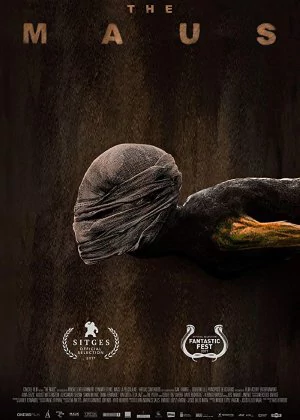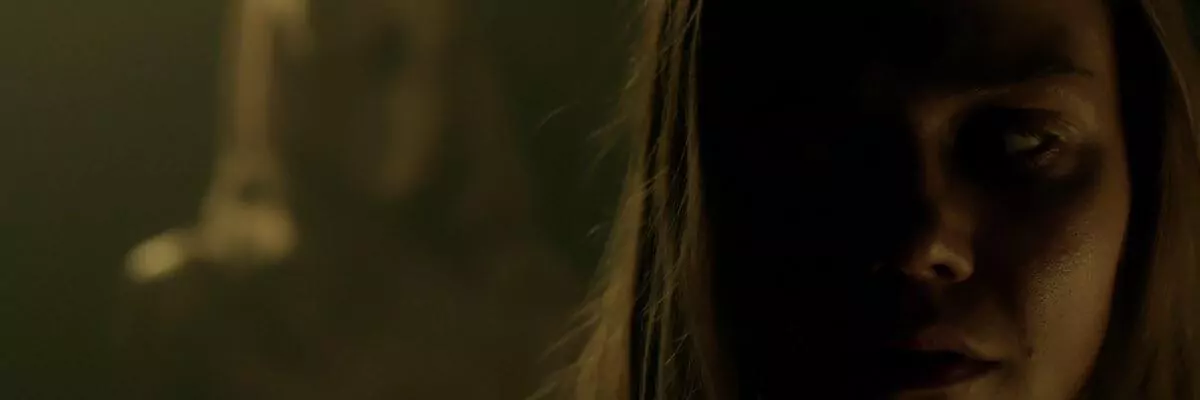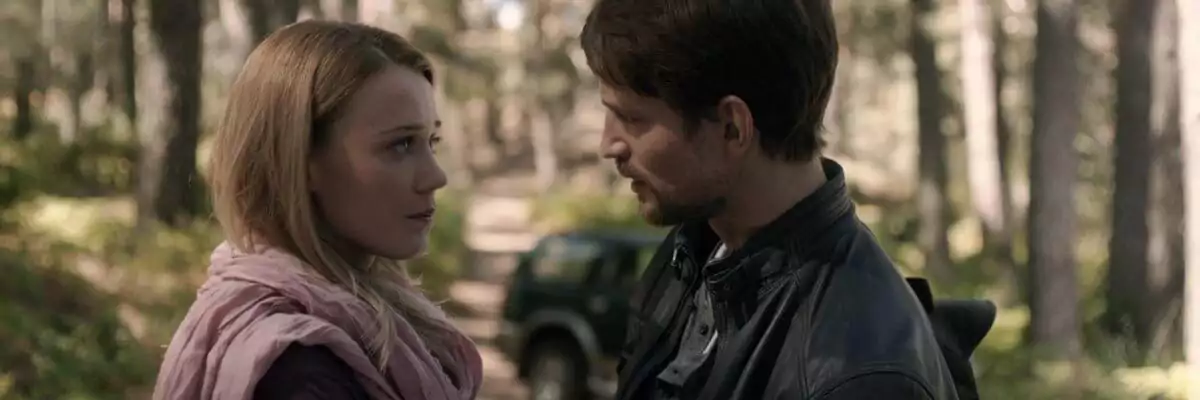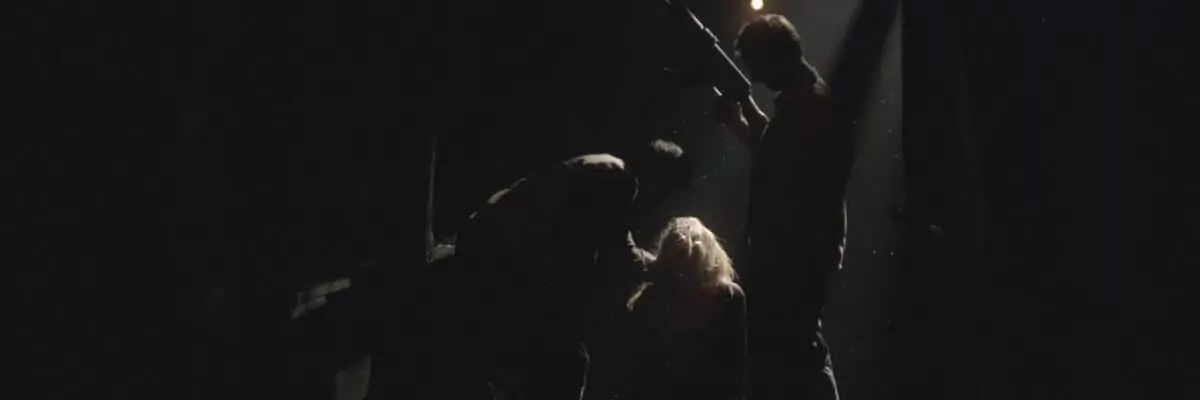The Maus

Horror is often thought of as a finished genre. A genre that shuns originality, that thrives on and revels in clichés. There's a slew of movies that seems to support this notion, but once in a while a film surfaces that shatters these preconceptions. Yayo Herrero's The Maus is one of those films. While not completely void of typical horror elements, Herrero's approach, setting and end game is completely unique, impossible to compare with other films in the genre. That alone should make it worth your time.

Horror is often seen as an easy breakout genre for a first-time director. It can be done fast and cheap, without actively ruining the appeal of the film. But that's clearly not the route Herrero was planning to take. As a Spanish director, making an English-language debut with a Serbian/German cast, surrounding the aftermath of the Bosnian War just isn't taking the easy way out. It's a somewhat baffling and unlikely collission of countries and nationalities coming together, but it betrays Herrero's dedication in trying to make a film that stands out from the crowd.
The Maus isn't really a straight-up horror project either. While the basic structure of the film borrows shamelessly from seasoned horror niches, The Maus is uprooted by very specific deviations from the mold. Herrero adds targeted splashes of fantasy and drama that erase the scare/gore appeal from the film, the drama in particular translating into a more layered and political experience. Don't expect to get your normal horror fix from The Maus, because you'll end up being very disappointed.
The plot of the film is really basic though. A young couple (Selma and Alex) finds itself stranded in the midst of a big forest. They were on their way to the airport when their car broke down. Alex suggests they walk to the nearest village, but Selma doesn't feel comfortable leaving the car. She has a bad feeling and fears they'll hit a wayward landmine (leftovers from the Bosnian War). Alex manages to convince her everything will be fine, but soon after they encounter two ominous looking men rummaging around the forest.

Another area where the film really sets itself apart is the cinematography. The camera work in particular is absolutely spectacular. Camera movements are slow and meticulous, creating a dreamy vibe, while the focus of the camera often remains on people's faces, making for a more claustrophobic effect. This combination is pretty unique, turning the forest into an otherworldly, out of focus space that puts audience in a somewhat trance-like state, while building up tension and fear as the camera keeps panning around its subjects.
The soundtrack is slightly less upsetting, with a more typical selection of sounds and instruments laying out the mood. It's a solid soundtrack that more than fulfills its goals, but compared to the rest of the film it's clearly one of the less remarkable elements. Herrero makes great use of off-screen sounds though. With the focus of the camera firmly fixed on the characters, the audience often is left in the dark about what's happening around them. But by highlighting the sound of offscreen actions, a lot of extra tension and dread is generated as the camera finally decides to slowly pan towards the action.
With the camera constantly circling the actors, you need a cast with at least some acting chops. Herrero found some good leads, with Alma Terzic and August Wittgenstein doing a great job, especially considering the limited options they had to bring their characters to life. The bad guys are a bit more generic, but do come off as vile and ruthless villains. It's a small cast operating within a basic plot and little dialogue to distinguish themselves, but they definitely made it work.

It's clear from the way the film is set up that Herrero isn't doing a simple genre exercise. There are underlying themes dealing with war traumas, human survival instinct and the escalation of problems left unattended. That last one in particular, related to a somewhat baffling epilogue, is a little confusing and might leave people wondering what the hell is going on. It's brave for Herrero to go the extra mile and leave the audience something to chew on, but seeing as this film is still marketed as a horror film, it might hurt the word-of-mouth.
The Maus is a terrific horror flick. Yayo Herrero delivers a seemingly simple film that has a lot brewing underneath its surface. It's moody and stylish but also grim and harsh when needed, while strong camera work, a solid cast and a unique blend of familiar elements sets it apart from its peers. It's quite the calling card for Herrero, who should have little trouble securing a budget for his next film (fingers crossed there). Recommended if you like your horror cinema a little different from the norm.